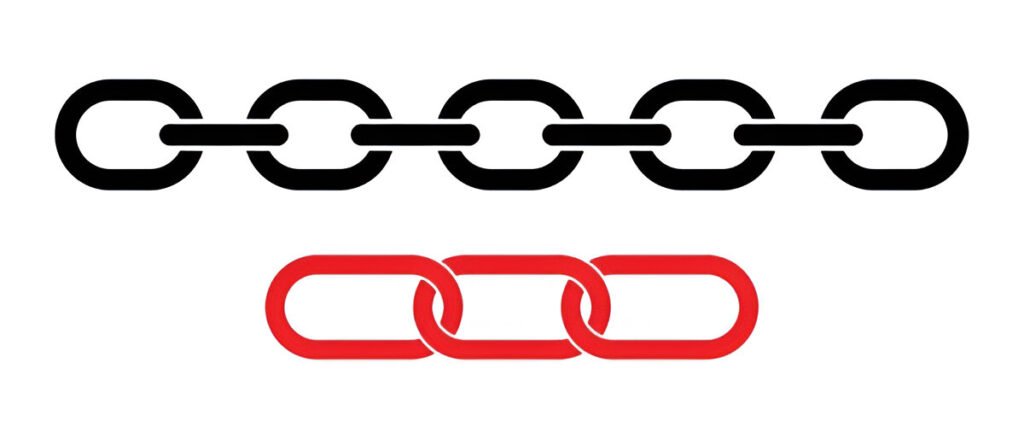How Community Websites Track Outbound Links for Marketing Agency Clients

Community websites—forums, social platforms, Q&A sites, and industry hubs—represent valuable marketing channels for brands, offering opportunities for authentic engagement and targeted visibility. For marketing agencies managing these relationships, tracking outbound links (links pointing from the community site to a client’s website) is crucial for demonstrating value and optimizing campaigns. This article explores the technical methods used to track these links and the insights they provide.
Why Track Outbound Links from Community Websites?
Before diving into tracking methods, it’s important to understand why this data matters:
- Attribution: Identifying which community sources drive the most valuable traffic
- Conversion Analysis: Understanding which referral paths lead to desired actions
- ROI Calculation: Quantifying the value of community engagement efforts
- Content Optimization: Determining which topics and approaches generate click-throughs
- Community Selection: Identifying which platforms provide the best return for client investment
Core Technologies for Outbound Link Tracking
UTM Parameters
UTM (Urchin Tracking Module) parameters remain the foundation of most outbound link tracking systems. These URL parameters allow precise source identification when added to links:
https://www.clientwebsite.com/landing-page?utm_source=community-forum&utm_medium=forum-post&utm_campaign=q2-engagement&utm_content=troubleshooting-thread
Key parameters include:
- utm_source: Identifies the specific community (e.g., “reddit” or “industry-forum”)
- utm_medium: Describes the link placement type (e.g., “signature,” “comment,” “profile”)
- utm_campaign: Connects to broader marketing initiatives
- utm_content: Distinguishes between multiple links in the same location
- utm_term: Optional, can identify specific keywords or topics
Click Tracking Tools
Several specialized tools enhance basic UTM tracking:
- Shortened URLs with Analytics: Services like Bitly, Rebrandly, and TinyURL Pro provide click metrics while making links more presentable in community contexts.
- Intermediary Redirect Pages: Custom-built landing pages that log click data before redirecting to the final destination.
- JavaScript-Based Trackers: Code snippets that fire events when outbound links are clicked, commonly implemented via Google Tag Manager.
- API-Based Systems: Advanced solutions that connect directly to community platforms’ APIs to extract engagement metrics alongside click data.
Implementation Strategies
Direct Placement
When marketing agencies manage community accounts directly:
- Standardized Link Structure: Create templated UTM formulas for consistent tracking
- Link Management Platforms: Use services that maintain a central repository of trackable links
- Link Rotation Systems: Implement technology to cycle through different variants to test effectiveness
Partner and Influencer Implementation
When working with community managers or influencers:
- Link Generation Tools: Provide partners with custom tools to create properly tagged links
- Verification Systems: Implement checks to ensure links contain required tracking parameters
- Educational Resources: Train partners on the importance of consistent link formatting
Community-Specific Challenges
Different community platforms present unique tracking considerations:
Forums and Discussion Boards
- Some forums strip UTM parameters; shortened URLs may be necessary
- Many forums “nofollow” links, affecting SEO value but not click tracking
- User signatures often allow persistent link placement requiring separate tracking
Social Media Communities
- Native analytics frequently compete with external tracking
- Mobile apps may handle links differently than browser versions
- Character limitations may restrict full UTM implementation
Q&A Sites
- Contextual relevance is critical for link performance
- Answer quality scores may affect link visibility and tracking
- Many platforms restrict commercial links or require disclosure
Data Collection and Analysis
Analytics Integration
Effective outbound link tracking connects to broader analytics systems:
- GA4 Configuration: Set up custom channel groupings to isolate community traffic
- CRM Integration: Connect click data to lead generation and conversion metrics
- Multi-touch Attribution: Account for community touchpoints in broader customer journeys
Key Performance Indicators
The most valuable metrics when analyzing community outbound links:
- Click-through Rate (CTR): Percentage of viewers who click the link
- Post-Click Engagement: Time on site and pages viewed after arrival
- Conversion Rate: Percentage of visitors completing desired actions
- Return Visitor Rate: How often community referrals return
- Cost Per Acquisition (CPA): Total community investment divided by conversions
Reporting Frameworks
Structured approaches to presenting tracking data to clients:
- Community Performance Dashboards: Visual representations of traffic and engagement metrics
- ROI Calculators: Tools connecting community investment to business outcomes
- Competitor Benchmarking: Comparative analysis of client performance vs. industry standards
Privacy and Ethical Considerations
Compliance Requirements
- GDPR Implications: Ensure tracking methods respect European privacy regulations
- CCPA Compliance: Address California privacy requirements for data collection
- Platform-Specific Rules: Honor each community’s terms regarding tracking technology
Transparent Practices
- Disclosure Requirements: When and how to disclose tracking to community members
- Affiliate Link Policies: Special considerations for compensated referral tracking
- Data Minimization: Collecting only necessary information for effective tracking
Advanced Tracking Methodologies
Cross-Device Tracking
Methods for following community referrals across multiple devices:
- User ID Systems: Implementing consistent identifiers across platforms
- Probabilistic Matching: Using AI to connect likely cross-device journeys
- Login-Based Tracking: Leveraging authenticated user sessions for continuity
Offline Conversion Tracking
Connecting community references to non-digital actions:
- Coupon Codes: Unique identifiers for community-specific offers
- Call Tracking: Phone number variants for community outreach
- In-Store Attribution: Methods connecting digital community engagement to physical visits
Implementation Checklist
For marketing agencies implementing outbound link tracking for clients:
- Audit Current Links: Assess existing community presence and link structure
- Define Tracking Requirements: Determine which metrics matter most to client goals
- Select Appropriate Tools: Choose tracking technologies based on community context
- Implement Consistent Parameters: Establish naming conventions and link structures
- Create Documentation: Develop guides for team members and partners
- Set Up Reporting Templates: Build visualization frameworks for client presentations
- Establish Testing Protocol: Regularly verify tracking accuracy across platforms
- Review and Optimize: Schedule periodic assessments of tracking effectiveness
Conclusion
Effective tracking of outbound links from community websites provides marketing agencies with powerful data to demonstrate client ROI and optimize engagement strategies. By implementing structured tracking systems that respect both technical limitations and ethical considerations, agencies can transform community participation from a qualitative effort to a quantifiable marketing channel with measurable impacts on client business objectives.
As community engagement becomes increasingly important in digital marketing strategies, sophisticated tracking of outbound links will remain a critical capability for agencies seeking to prove value and continuously improve performance.





